EMC VCE Chief On The Impact Of The Dell Deal, Cisco Networking And The Hyperconverged Battle With Nutanix And SimpliVity
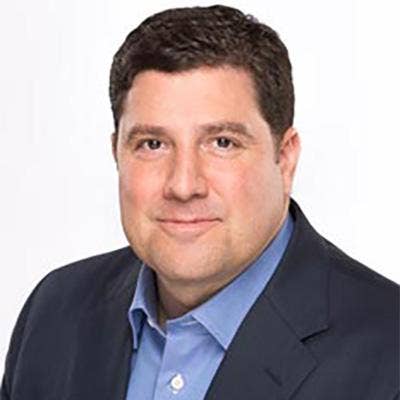
In an interview with CRN at the annual EMC World conference in Las Vegas, Todd Pavone, COO of EMC's VCE converged systems division, addressed a wide range of issues including how the impending merger with Dell will impact VCE, the battle with SimpliVity and Nutanix, as well as the strategies partners need to adopt in order to stay on top of the market.
The interview came with EMC's VCE Converged Systems business rolling out a new x86-based, rack-scale, hyper-converged infrastructure solution for native hybrid cloud that will use Dell servers when the two companies finalize their pending $60 billion merger.
Like previous VxRack products, the new VxRack System 1000 with Neutrino nodes will use Cisco switching.
What follows is an edited excerpt of CRN's conversation with Pavone.
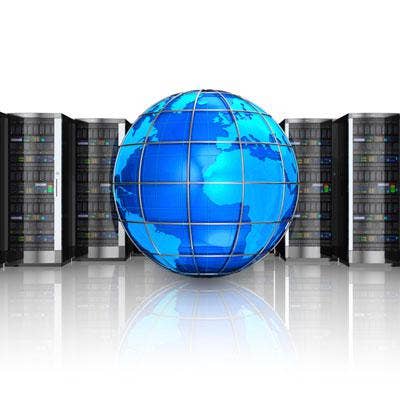
Do you do anything on Dell servers now?
EMC does do some things with Dell servers. Right now, we don't use Dell, but you can start to see that scenario where there's huge opportunity.
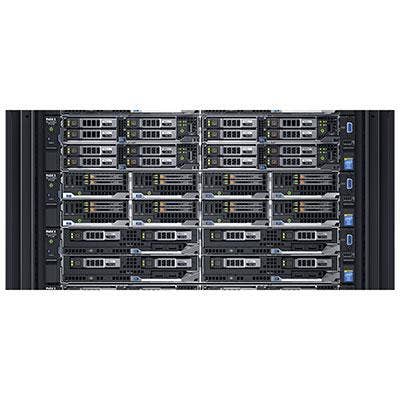
Which ones look attractive to you, the FX?
Yeah, the FX. We're doing all the planning, so more to come on that when the deal closes. But you can see that being a good fit in the hyper-converged space, because in the hyper-converged space you want to get your price points lower, you want more configurability options, and having a robust server allows you to go do that. That's a huge opportunity.
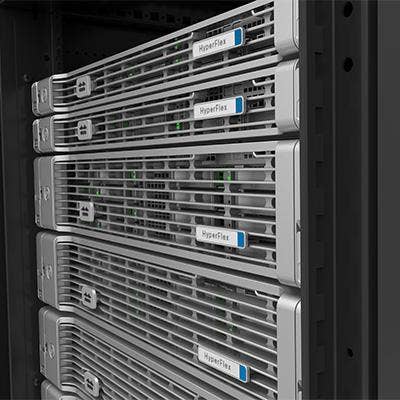
Is the VxRack 1000 with Neutrino nodes Cisco-based? Can you see Dell being part of that?
It's an x86 server, so you could see Dell being part of that. It's not a Cisco server. It is Cisco networking. Our rack portfolio, we renamed it to VxRack 1000 with three different software options: Flex, which is ScaleIO, your SDDC, which is a VMware software data center, and then you have Neutrino, which is for native hybrid cloud with EMC. It's the same value and experience as a block, but in this case it's a hyper-converged, highly scalable rack architecture with seamless support, interoperability, ships in the same timeframe as a component [and] out of the box you can start provisioning IaaS within an hour. It's all about time and speed.
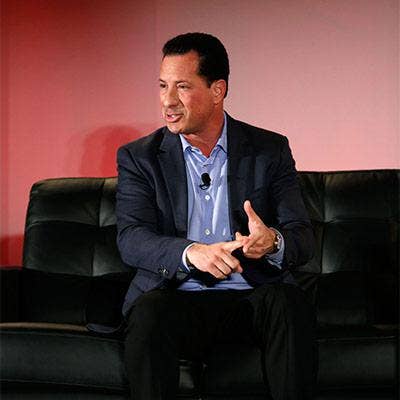
SimpliVity talks a lot about dedupe, where and how they do it. How does VxRack 1000 compare?
Depending on which software – flex, SDDC or Neutrino – you have different options. It's the same thing with VxRail, the appliance that's a competitive comparison to SimpliVity, leveraging EMC DPAD and their set of products. It gets back to the idea that the portfolio approach is resonating. I think the disruptors are going to have a challenge taking a single architecture product and having it do things it was never architected to do. You can't take SimpliVity or Nutanix and put it in the core data center and have it go run 250 nodes. It just can't scale to do that. I think that's what customers are really starting to appreciate.
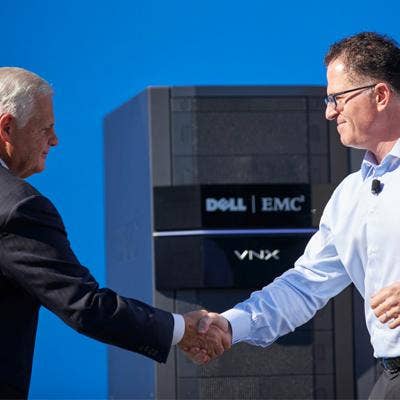
Talk about the channel strategy in the wake of the Dell deal.
We went from having our own channel at VCE, to leveraging EMC, and now we're going to be leveraging Dell. I think having a global, massive, single channel will help our channel partners tremendously. Essentially I think for us, we want to give them breadth.
The best partners will be able to go into a client and understand what their challenges are and offer them the right solution. I'd like to see [partners] be a little more consultative. CIOs are struggling with how they manage this hybrid cloud world. How do they know which applications to put where? I think the best partners are the ones that can help them architect that data center, that architecture that will have certain workloads in the cloud, certain workloads locally, and in the most cost-effective way. That's not easy.

What kind of skills does the channel need to succeed in the cloud era?
You need people with deep architectural skills to have those conversations that can understand applications through the architecture. If we can give them the best, broadest portfolio, I think that's magic when that happens. IT has changed so fast in the last 10 years. IT used to be slow, changes took a while to be deployed. If you look at how fast things have changed, customers are struggling with choice. They need help, and I think our partners that can help them make those decisions, they're the ones that are going to be the most successful.

What kind of success are partners having that are focusing on cloud and hyperconverged?
They're killing it. Their margins are going higher, and they're growing the fastest. A lot of the channel partners that we work with today that have figured this out early, it's more value add, more margin, and that's what it comes down to. They're looking at double-digit growth, and more than that on margin. It all comes down to the value. If you look at service providers, there are some that won't make that transition. There are others that will. If you're a reseller, you'll have some that will make the change, and some that will not. The best partners I've seen are clearly the ones that can go in as a consultant and help customers understand where they're going and what the challenges are. It sounds obvious, but it's not easy to do.

Is the key that as a partner you become a business consultant versus selling IT.
Yes. I was a consultant for a lot of years, and people throw the 'consultative' term around, but to do that is not easy. You need to understand the customer's business. You need to understand their vertical. You need to understand the connections between applications and infrastructure. Those that can do that are doing incredibly well. We need those partners.
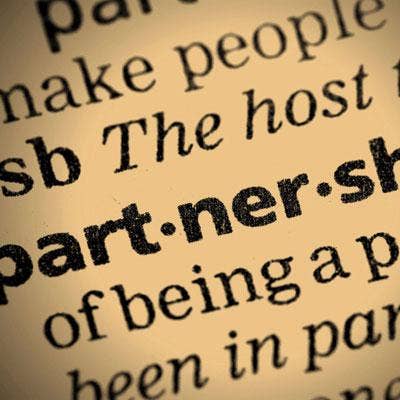
Do you need more partners, or do you need more of the partners you currently have to make the move into that model?
I don't think it's a volume thing. You want to get partners moving more up the value chain. We want to help them move up the value chain. It's quality, not quantity. The value of having lots of partners is, you cover more market: SMB, mid, globals, enterprises. But having those that can go up the value chain is highly impactful.
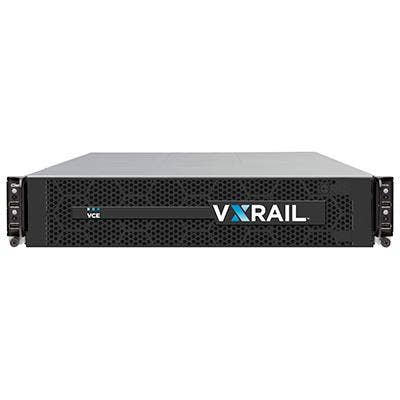
What are some of the big themes you're seeing in the market lately?
The portfolio approach we've created has really resonated well. I think we knew from a technology perspective that you can't have one product that supports all the customers' needs. The nature of application development has changed. Many companies have traditional, and then they have native hybrid cloud, and they go across the board. Our approach of having blocks, racks and appliances has really resonated well in the market, for big and small customers.
In the appliance space, the VxRail, has done incredibly well. What we've done with racks and what we're announcing with the VxRack 1000, that's having traction in very large, globals and service providers where they're not into building things themselves.
We're taking a Vblock approach and applying it to a rack architecture, so it's highly differentiated. I think the key is being able to support any workload either privately or also having linkages to our cloud and having the ability to do it converged or hyper-converged and then feeding it all with a single set of resources and having policy to be able to go manage that dynamically across those platforms, not as silos, but as a single set of virtual resources messages well.

What kind of growth are you seeing in hyper-converged?
We're seeing big growth in hyper-converged. We're seeing the channel respond incredibly well to what we're doing in hyper-converged. We had an unbelievable start this year, we're seeing the leverage of EMC have a huge impact. Part of the reason we became part of EMC was scale, and we've actually seen that.
We're not sharing numbers, but it's significant year-on-year. We know we took market share in Q1. We sold in 37 different countries with VxRail. We would not have been able to do that as the joint venture we were before. Blocks are still 80-plus percent of our business, but the big growth percentages are in hyper-converged. We're seeing what is still a traditional competitive landscape. You have the disruptors. You have the cloud providers, and then there's the traditional IT players. We're not seeing a dramatic shift there.

When do you think hyper-converged will become the biggest portion of the market?
I don't know if anyone really knows that answer. I think people fundamentally believe that like 3-5 years out you'll start to see that become the dominant architecture over traditional, but we're still seeing the majority being traditional converged. You have three types of customers. You have those that are still do-it-yourself moving to converged, you have those that have made an architectural decision that I'm only going to buy hyper-converged, they're not going to buy traditional again. Most customers are playing with both. That's why you really need to have this portfolio approach to support all those customers.

Are some customers shying away from hyper-converged because they're simply more comfortable with legacy tech?
I would love for customers not to care, meaning not to care what's underneath, and just say 'here's what I need, and I need flexibility to grow.' That tells you that the hyper-converged architecture is the way to go. It depends on the customer. Some customers are still very particular about what's under the covers. They want to know it's world-class networking and world-class storage. Others don't care, they just want the SLA. That's where everyone's heading, but the question is how long will that take? What's important for us is to support both. That's the key.

Is a hyper-converged SLA as strong as traditional?
It depends on the application, but yeah, absolutely. It's interesting with the disruptors – Nutanix, SimpliVity – I think it's going to be hard to win in the hyper-converged market long-term if you don't own a server. One of the benefits of the EMC-Dell deal closing will be having a world-class supply chain and then being more competitive on pricing. It's a huge advantage in that space.

What do you see in the future for the hardware market?
If you look at it, you have your traditional hardware line going down, and you have your growth businesses going up. The growth is a lot of software as opposed to traditional hardware. The challenge is as you do this, how do you continue to hit your quarterly earnings as a public company and have your growth companies grow faster than the decline of your traditional business. The beauty of going private is that you can do what's right in this model. To me that is a huge benefit of what is to come, because if you manage on that 90-day cycle, you make short-term trade-offs. So, traditional hardware is going to continue to decrease, but flash is going through the roof. What we're doing is going through the roof. I don't think it'll be as fast a decline as everyone believes.
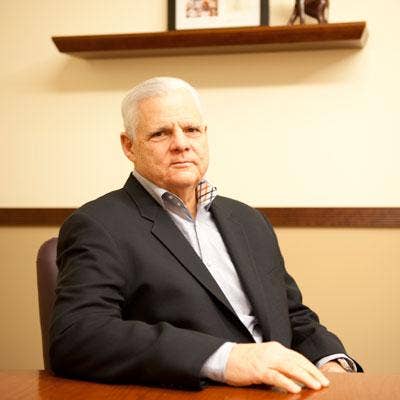
Talk about EMC CEO Joe Tucci's ability to successfully grow the EMC business over the years?
I think Joe [Tucci] has done a fantastic job with organic growth and buying growth. He believes in disrupting the existing business to grow a new business, and I think if you look at a lot of companies that failed, they just didn't do that. It's hard to do.
You could look at every failed technology company, and they failed to go into the white space. The held on too much to their legacy. Unfortunately for a public company, it's very difficult to manage through that. Another thing I'm seeing is a theme that public cloud is clearly here to stay, however I'm seeing companies realize that the IT is not a support organization, it's a key differentiator for the business. It'll make or break their business.
Do they want to take the most critical applications and put them in someone else's hands, or do they want to do it themselves? I do think you're going to see workloads, you're going to see people push hard to keep things that are really differentiators for them locally or privately. They want to control that application because it is a differentiator.
Can you give an example? What kinds of things do people want to keep close?
I think if you're, by nature, a technology company where you're building your new applications that are going to be the new differentiation for you, you want to keep those locally. It could be any of the new wave technologies, any of the new apps coming out today, or if you're a big global company and you're rolling out a new business line, those applications that are new and differentiated, a lot of companies are bringing them back in-house, or keeping them in-house. I was with a big global financial services firm, and they're doing some new applications for their customer base. When we had this conversation, they got very passionate. They don't want to move those apps into the cloud because they will lose control, and possibly the ability to differentiate. They want to keep them internal. The VxRack 1000 with Neutrino nodes, that's what that's all about, building turnkey systems for building native hybrid cloud.
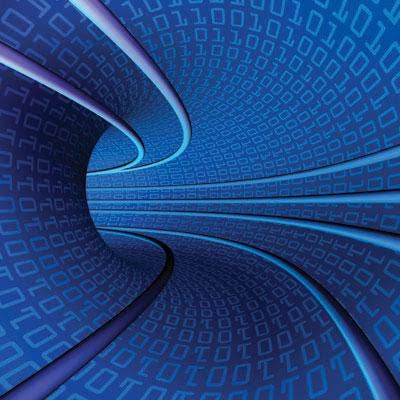
Do customers still feel like they're taking a deep breath and jumping in the deep end with hyper-converged, or is it becoming a little easier?
It depends on the customer. We have some that have made an architectural decision and that's it. That's all they will buy. You have others that will do test-[development]. They'll try it. You have others that say they're not going to do it yet. The question is how many are where? I think the vast majority are in the middle. They want some testing of it, but they're not going to go run their SAP that's running everything. You can understand that.
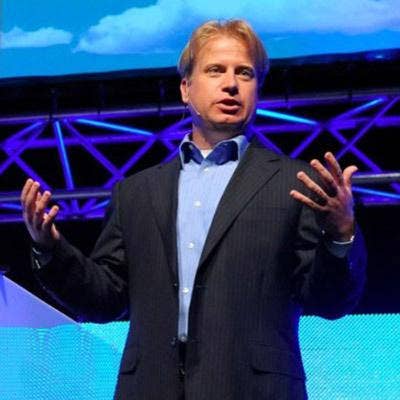
What does (VCE President) Chad Sakac bring to the table at VCE?
He's a tremendous technologist. I've known Chad since day one when I came to EMC. He's a great innovator. He understands the markets. He's got tremendous relationships with customers and partners. The whole reason we became a division of EMC was for scale, not just selling scale, but delivery scale; he single-handedly brings that to a whole new level. He has global scale to all of EMC's pre-sale. He has literally 4,000 pre-sales engineers that work for him, so that's huge leverage. He's worked with the entire sales organization. His relationships with Pat Gelsinger, with Michael Dell, with David [Goulden], all those things are huge positives. His passion, too. He's as passionate and as energized as they come.